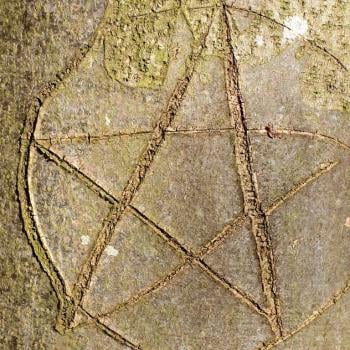Lectionary Reflections
Isaiah 65:17-25
March 27, 2016
Easter Sunday
Once again, it is time for a personal confession. This progressive Christian does not believe that the dead body of Jesus actually rose up on Easter day. Despite the millions of words written and read, the thousands of hymns composed and sung, the deaths of scads of lilies, and the earnest and heartfelt hopes of countless believers that Jesus' historical resurrection assures their own, I simply do not accept that the narrative of the resurrection occurred in any historical way. It is for me just that: a narrative, a story designed by the writers of the gospel to present God's affirmation of a new way for all of us who do believe that story is the true and literal example of what God had in mind for humanity from the beginning of time. I, of course, speak only for myself here, and hardly would demand that any of you believe the same. For me, it is the only reputable and useful way that I can appropriate the event for my emerging faith.
By this confession, I in no way affirm that foolishness propounded by Hugh Schonfield some years ago where in The Passover Plot, he "argued" (a very loose use of that term) that the disciples and Jesus cooked up a scheme to make it look like Jesus had been raised from the dead, while in fact he lived to a ripe old age, married, and had a few kids (shades of The Da Vinci Code, anyone?). Whatever may have happened on that torturous hill and unknown tomb nearly two millennia ago has been lost forever in the mists of time. But that is no reason at all to miss the tremendous thing that was being said by those gospel writers, an idea that remains transformative even now. And that idea is beautifully stated by a master poet some 500 years before the birth of Jesus, an unknown figure we call Third-Isaiah, having no real name we may give him.
I know full well that no preacher on Easter Sunday is likely to base her sermon on a passage from Isaiah while a gospel account is staring her in the face and while strangers appear in the congregation, joining many of the regular attendees awaiting a word about the proof of the resurrection event. I offer the following reflections for those who are less interested in unprovable proof than they may be in what really counts about this wonderful day in the Christian year. To those few, however many you may be, we now turn to Isaiah 65.
Watch! I am creating new skies and new earth!
Earlier things will not be remembered,
nor even rise into the mind!
But you must delight and be glad forever
about what I am creating:
Just watch! I am creating Jerusalem a joy,
its people a delight.
I will rejoice in Jerusalem, delight in my people.
Never again will the sound of weeping or the cry of distress by heard! (Is. 65:17-19)
This is the essence of the story of resurrection. God is creating something new! No, not a resuscitated corpse, but a new way of seeing the world that God has given to us. The old ways we have followed will no longer work. Our watchwords for this world must now be joy and delight in the face of this fabulously creating God. No longer will we focus on weeping and distress, though all of us know too well that there are copious tears and loud wailing to be found in too many places. But rather than imagine that there are only tears and wailing to be heard, God urges us to face these monumental problems not with despair and hopelessness, but with the joy of hope and the delight of shared work.
When Isaiah mentions that "Jerusalem" will be God's joy and delight, he does not mean only that physical location, since when he is writing that city is still a smoldering ruin, having been destroyed by the Babylonian aggressors some years before, and has yet to be rebuilt in any recognizable way. Jerusalem has become for him the focus of God's concerted attempts to make new skies and earth. In other words, we, our world, have become God's Jerusalem, the center of God's new creation, the locus of God's joy and delight. And then Isaiah gets more specific about God's new creation.
No more will there be an infant living but a few days,
or an elderly one not living a full lifetime.
One who dies at a hundred will be thought a youth;
One falling short of a hundred will be thought cursed.
Obviously, infant mortality was a huge concern 2500 years ago; even in Elizabethan England 400 years ago, barely 50 percent of children survived past two years. One can only imagine in nightmares the figure during the time of Isaiah. I read just yesterday that there are now nearly 500,000 people living in our world who are 100 years old. This is, of course, in a world of some 8 billion! Our odds of achieving what has long been seen as extreme old age remain low. But when God is creating a new earth, such a feat will not be difficult at all.





